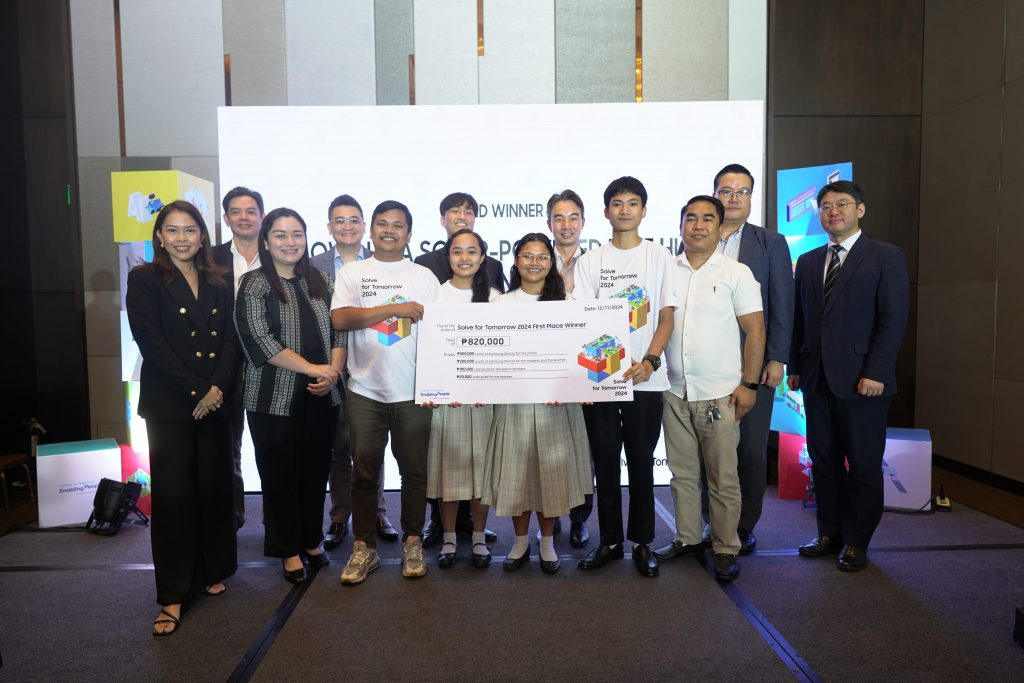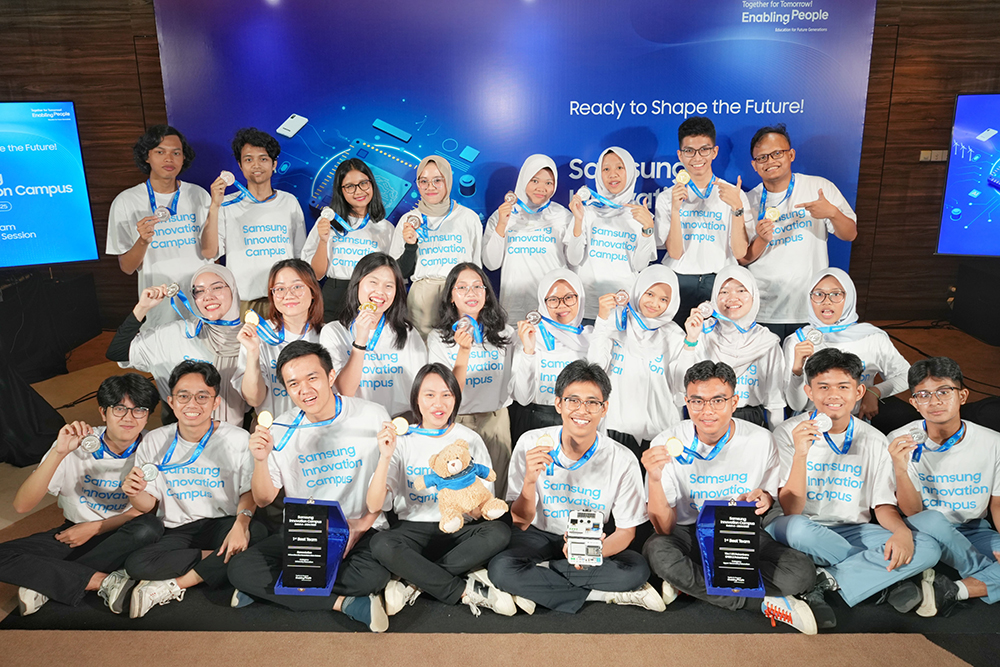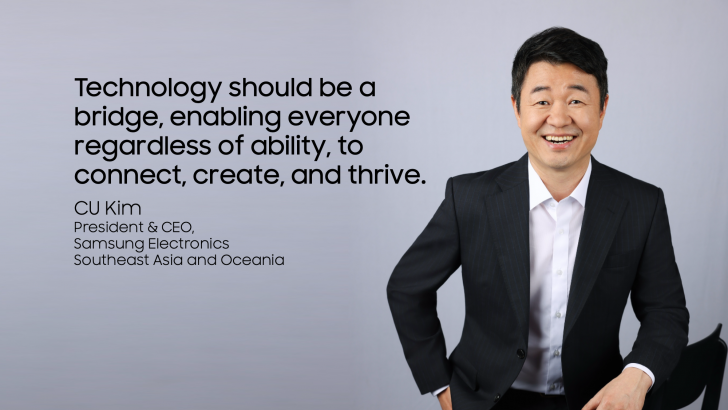By CU Kim, President & CEO, Southeast Asia and Oceania
At Samsung, we strive for continuous growth and improvement, while also recognizing the importance of empowering the next generation to drive their own innovation and progress. Today, technologies like generative artificial intelligence (AI) are fast becoming the transformative technological developments of this era, and we strongly believe in the technology’s potential in enhancing our capabilities.
I found a recent report from the United Nations Development Programme (UNDP) to be quite interesting; the findings revealed global human development progress – a measure of improvements in health, education, and income levels according to the UNDP’s Human Development Index (HDI) – has slowed to a 35-year low. While this take was concerning, what followed was unprecedented optimism about AI’s potential – with 60% of respondents worldwide hopeful that AI will create new job opportunities[1].
We now stand at the edge of a digital divide. As a global technology leader, we are taking on the responsibility to equip all with technology – such as AI – as well as skills that empower them to co-create meaningful change at scale.
Inspiring Collective Innovation Through Human-Centered AI
In the vibrant Southeast Asia & Oceania (SEAO) region, we are already seeing the next generation embracing AI’s potential, not just to shape their careers, but also to drive meaningful social change[2]. These insights align with UNDP findings that show two-thirds of respondents anticipating the usage of AI in education, health, or work within the next year1.
At Samsung, initiatives like Solve for Tomorrow (SFT), our global flagship corporate social responsibility (CSR) program, embodies the United Nations’ (UN) call for building an economy where people leverage AI rather than compete against it1. Across SEAO, the 2025 edition of SFT has kicked off in Vietnam, Indonesia, Australia, Thailand, Singapore, Philippines, Malaysia and New Zealand.

The Solve For Tomorrow 2024 Philippines Grand Prize winner hails from Lipa City Science Integrated National High School, with their entry, “Hi-LoWall: A Solar-Powered Rice Husk Fog Wall Utilizing Evaporative Cooling”.
Through the competition, participants gain the skills and confidence to tackle complex problems, transforming their ideas into actionable solutions that solve real problems. One such example is Samsung Philippines’ Solve For Tomorrow champion in 2024, where students from Lipa City Science Integrated National High School presented an innovative and water-efficient solution using rice husk biochar fog walls to combat rising heat indices caused by El Niño, which disrupts public school operations.
Our approach to CSR also reflects the UN’s focus on embedding human agency across the full AI lifecycle, from design to deployment1. Through programs like SFT, we ensure that young innovators remain at the center of technological solutions, and not just as passive recipients.
Investing in the Leaders of Tomorrow
Today, we are also seeing the democratization of AI underway. Our own youth survey on AI reveals that 9 in 10 youths in SEAO are using AI daily2, with UNDP also reporting similar findings, indicating that 1 in 5 survey respondents are already utilizing AI1.
Notably, the UNDP highlights that 70% of people in low- and medium-HDI countries expect AI to increase their productivity1. At the same time, our youth survey on AI also highlights that 78% of youths in SEAO are using AI for learning2. These insights reinforce the potential of AI as a bridge to new knowledge and skills, thereby making Samsung’s contributions towards skills development not just beneficial, but essential for regional economic growth and competitiveness.
Creating a future-ready workforce means bridging the digital divide, and ensuring those without easy access to education, technology, and upskilling opportunities, have the support they need to both participate in and drive change.

Samsung Innovation Campus is a global education program that helps youth build advanced IT skills and practical capabilities for better opportunities.
Across the region, we empower young people through initiatives like Samsung Innovation Campus (SIC), providing information and communications technology education in areas such as Coding & Programming, Internet of Things and AI. By bridging the skills gap and laying a foundation for future employment, we’re contributing to the development of skilled professionals and supporting national goals, such as Indonesia’s digital economy growth, which will need an additional 9 million digital talent by 2030.
Over in Thailand, our decade-long partnership with the Office of the Vocational Education Commission through the Dual Vocational Education (DVE) program empowers vocational students with real-world experience and future-ready capabilities. By combining classroom learning with on-the-job training, the program not only strengthens technical expertise, but also cultivates vital skills such as critical thinking, problem-solving, and teamwork. This well-rounded approach ensures that students are fully equipped to succeed and contribute meaningfully to Thailand’s development.
Technology as a Bridge
This commitment to inclusivity extends beyond product design and into how we think about the future of work. As industries evolve and the green economy expands, we must ensure that no one is left behind.
By working closely with government agencies, educators, partners, customers, and the youth who will inherit this future, we are building not just products but responding to the urgent need for new approaches to development, by creating pathways where innovation uplifts communities, and ensuring that everyone has a role in shaping an AI-enhanced future.
For more information, please visit: https://news.samsung.com/my/
